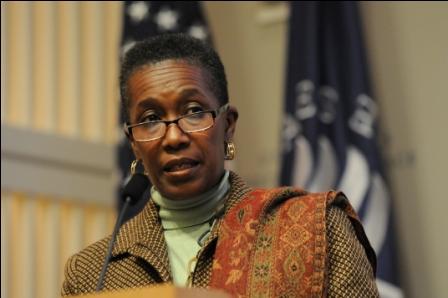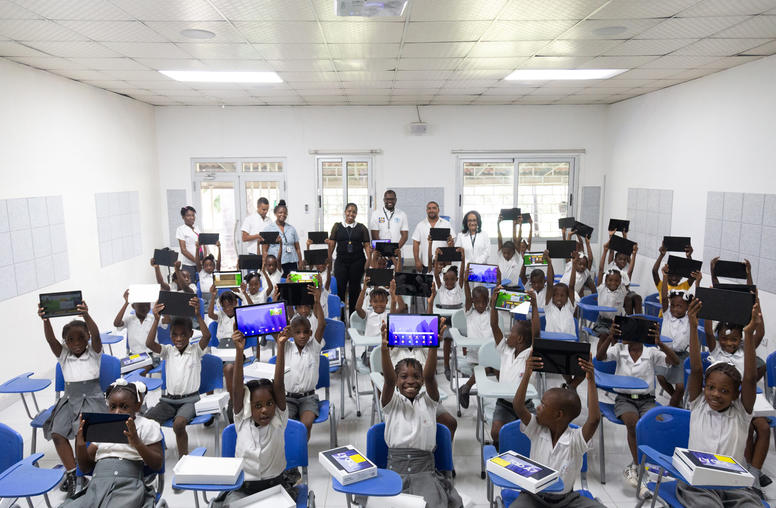Haiti: Reconstruction and the Role of Women
On November 29, 2011, the U.S. Institute of Peace hosted a panel of distinguished experts who discussed the situation of women in Haiti and their role in reconstruction. The event featured a delegation of women leaders from Haiti and an exhibition of photos taken by Haitian women depicting their lives in the tent cities around Port-au-Prince.
Read the event coverage, Rep. Donna Edwards: Invest in Women to Rebuild Haiti
 Women played a vital role in Haiti in the aftermath of the devastating 2010 earthquake. In leveled communities and overcrowded tent cities, Haitian women worked tirelessly to treat the wounded, reunite families, and support survivors. Nearly two years later, they remain a critical factor in Haiti’s recovery, but face considerable hardship. Gender-based violence, pregnancy-related mortality, extreme poverty, and unemployment remain high. Meanwhile, women feel excluded from the reconstruction process, which is stalled by political deadlock.
Women played a vital role in Haiti in the aftermath of the devastating 2010 earthquake. In leveled communities and overcrowded tent cities, Haitian women worked tirelessly to treat the wounded, reunite families, and support survivors. Nearly two years later, they remain a critical factor in Haiti’s recovery, but face considerable hardship. Gender-based violence, pregnancy-related mortality, extreme poverty, and unemployment remain high. Meanwhile, women feel excluded from the reconstruction process, which is stalled by political deadlock.
On November 29, the U.S. Institute of Peace hosted a panel of distinguished experts who discussed the situation of women in Haiti and their role in reconstruction. The event featured a delegation of women leaders from Haiti and an exhibition of photos taken by Haitian women depicting their lives in the tent cities around Port-au-Prince. Through a partnership between USIP and Digital Democracy, these women and others like them have been trained on how to utilize blogging, Facebook, Twitter, and other forms of new media to highlight issues in their communities and push for policy change.
Speakers
- Ambassador Richard Solomon (Introduction)
President, U.S. Institute of Peace - Congresswoman Donna Edwards (D-MD)
United States House of Representatives - Michèle Montas
Former Spokesperson for the UN Secretary General, Journalist/Consultant on Human Rights and Media Issues - Danielle Saint-Lot
Former Haitian Minister of Commerce, Industry and Tourism, Co-Founder and President of Femmes en Democratie - Emily Jacobi
Co-Founder and Executive Director, Digital Democracy - Kathleen Kuehnast
Director, Gender and Peacebuilding Center, U.S. Institute of Peace - Dr. Robert Maguire
Chairman, Haiti Working Group, U.S. Institute of Peace - Robert Perito
Director, Haiti Program, U.S. Institute of Peace
*With a delegation of civil society representatives from Haiti
Photo Exhibition
The following photographs were featured in an exhbition at this event. The images were taken by Haitian women with low-cost digital cameras and and depict their lives in the tent encampments around Port-au-Prince in the months following the January 2010 earthquake. These women were trained by Digital Democracy on how to utilize photography, blogging, and other forms of media to highlight issues in their communities and advocate for policy change. To see more photos, click here.
Explore Further
- Read the related USIP Peace Brief
- Watch the video recording of this event
- Read remarks by Danielle Saint-Lot
- More about USIP & Digital Democracy's work in Haiti: Monitoring Election- and Gender-Based Violence in Haiti
- USIP's Gender and Peacebuilding Center
- USIP's Haiti Program


